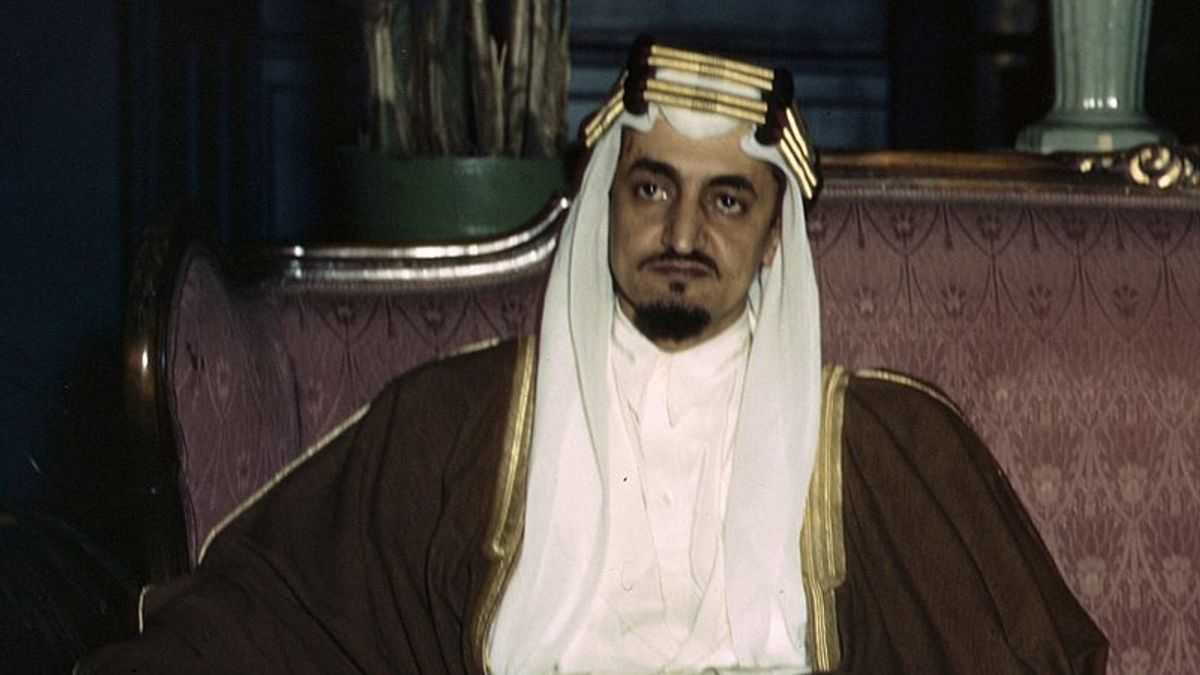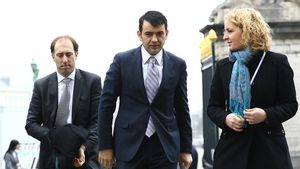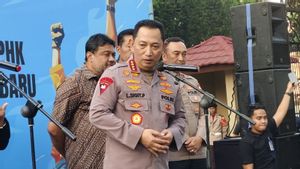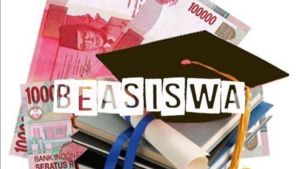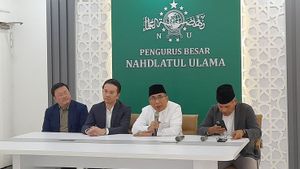JAKARTA - The third king of Saudi Arabia, Faisal, who is the son of the founder of the kingdom of Saudi Arabia, Abdul Aziz, was assassinated today March 25, 45 years ago or in 1975. Even though he is a king who is known to speak little, he is considered capable of leading a country. One of its legacies is reforming the world of education in the country.
That day, March 25, 1975, King Faisal was attending a bilateral meeting with the Kuwaiti oil minister. Quoting Hidayat and Mahmudi's writing entitled The Power and Fall of King Faisa in Saudi Arabia (2014), when King Faisal was welcoming a delegation from Kuwait in the king's office, Faisal bin Musaid, the nephew of King Faisal, suddenly entered the meeting room. just like that.
Faisal bin Musaid waited on one side of the room. After holding the meeting, seeing the whereabouts of Faisal bin Musaid, King Faisal also paid tribute to the young prince. King Faisal approached him and kissed his head and nose as a tradition of welcoming the Saud Family.
It happened so fast after that. Faisal bin Musaid put his hand in his pocket and took out a firearm and three hot lead was vomited on King Faisal's head. Ahmed bin Abdul Wahab, the person who was accompanying King Faisal, suddenly attacked Faisal bin Musaid and removed his gun. Faisal bin Musaid was later arrested by the military.
Meanwhile King Faisal was taken to the central hospital of Riyadh. Unfortunately at around 14.00 Riyadh time, the Riyadh Radio Station announced that King Faisal had died.
As a result of his actions, Prince Faisal bin Musaid was arrested. An investigation into this murder was launched. Within 16 weeks, the Saudi security authorities conducted an in-depth investigation and found no evidence of conspiracy in the murder.
Prince Faisal was once said to have had a mental illness by the royal family. However, panelists from medical experts, as reported by The New York Times, stated different things. They said Prince Faisal when he passed security guards before killing King Faisal was declared in a sane state.
The investigation extends to Prince Faisal's activities and traces his colleagues while he was studying in the United States.
First at the University of Colorado then the University of California at Berkeley. In the investigation, it was found that Prince Faisal was once arrested on charges of selling the illegal drug LSD.
After returning to Saudi Arabia, Prince Faisal was busy filling his time as an instructor at Riyadh University. At that time he was reportedly considered emotionally unstable, and was in psychiatric care in Beirut.
Several allegations were raised regarding the motive for the murder of King Faisal, from protesting against his ration money, due to love issues, to accusing Prince Faisal of being an Israeli intelligence agent, Mossad.
Meanwhile, the most plausible alleged motive is that Prince Prince feels bad about being banned from traveling abroad. The rejection was regarding the case of Prince's arrest in the United States.
Another strong speculation is that Prince Faisal wants to avenge a religious fanatic who was killed nine years ago before the shooting of King Faisal, by police who broke up demonstrations against attempts to modernize Saudi Arabia.
The reform of the faisal king's education
Faisal bin Abdul Aziz Al Saud is indeed known as the leader of the Kingdom of Saudi Arabia which is so popular in the world. The man who was born on April 14, 1906, has received the title of man of the year given by TIME magazine. He is considered to have carried out reforms, including policies of pan-Islamism, anti-communism, and pro-Palestine.
In addition, King Faisal is also known as the person who modernized educational institutions in Saudi Arabia. Education is one of King Faisal's main focuses in developing the Arab country.
According to Hidayat and Mahmudi (2014) for King Faisal, education is the main way in forming a strong and strong country. King Faisal made major changes regarding education in Saudi Arabia. At that time, Saudi Arabia embraced Free education for all. So that there is not a single community who does not get education ranging from basic education to higher education.
After ascending to the throne, King Faisal began to make policies to increase the budget for education costs, and provide scholarships to every Saudi Arabian who wants to study. In particular, for those who wish to study abroad, special scholarships are provided with official ties.
In addition, in the era of his rule, the categorization of education was applied for the first time in Arabia. He began to focus on developing education according to these categories, namely primary, secondary, tertiary and special education.
Before the 1960s, education in Arabia stagnated. Education, which is said to be for everyone, turns out that in practice there is still gender discrimination.
In Buraida, for example, as explained by Alexei Vassiliev in King Faisal: Personality, Faith, and Times (2013), the region which is known to be conservative still thinks that learning will encourage free behavior for women and this is considered to destroy the foundation of the family.
Then King Faisal and his wife Iffat began campaigning for education for women in 1962. Through a special school he made called Dar al-Hanan, King Faisal and his wife Iffat made a prototype of a modern women's school.
In 1964, about 1 million Saudi rials were spent on the development of the Dar al-Hanan school. In the same year, they have succeeded in making a school model that can be said to be new.
"Dar al-Hanan educates the best prospective mothers through Islamic teaching based on modern methods," wrote a local newspaper report as quoted by Vassiliev (2013).
The English, Chinese, Japanese, Arabic, and French versions are automatically generated by the AI. So there may still be inaccuracies in translating, please always see Indonesian as our main language. (system supported by DigitalSiber.id)
